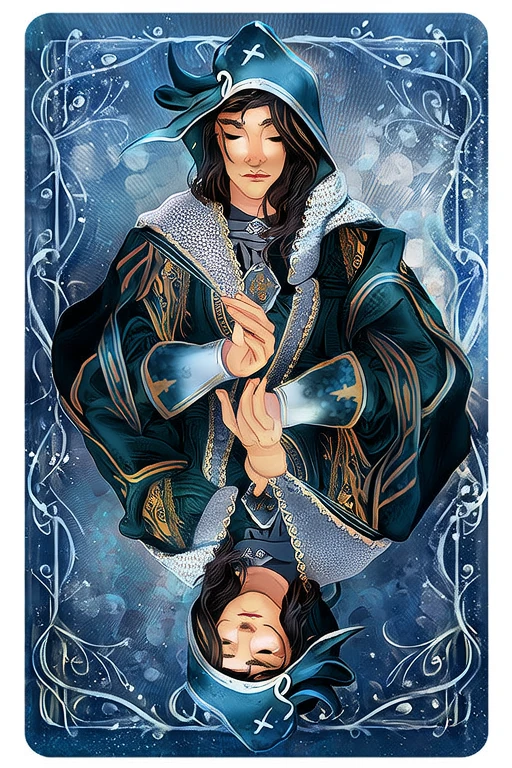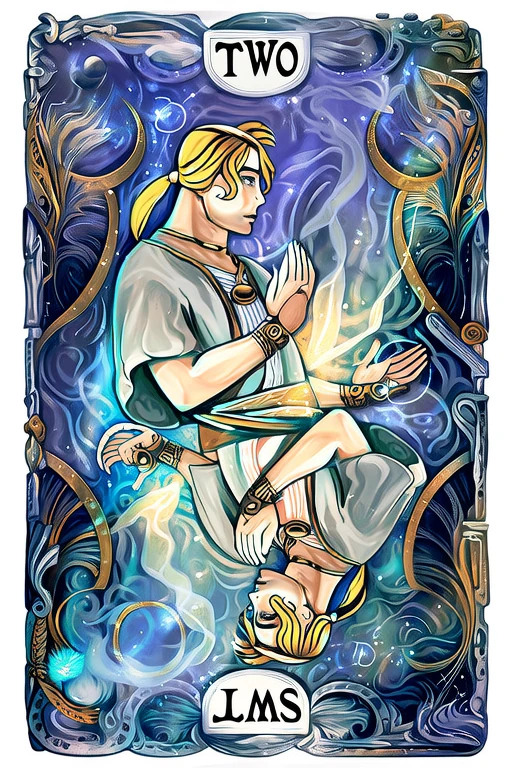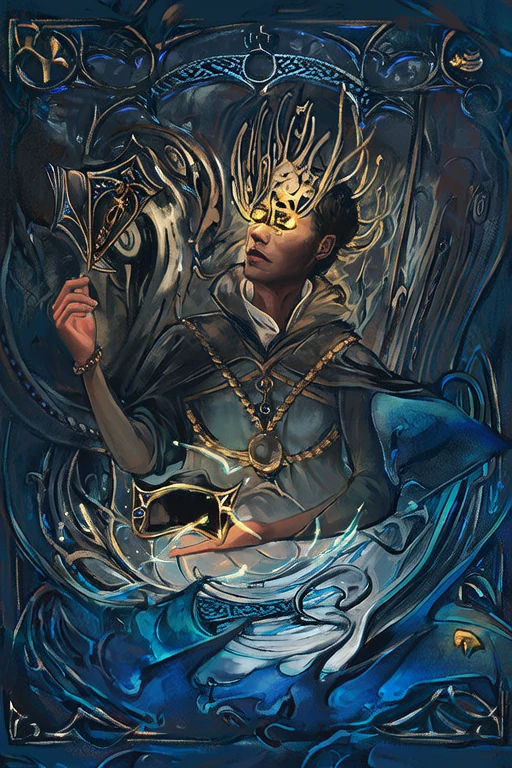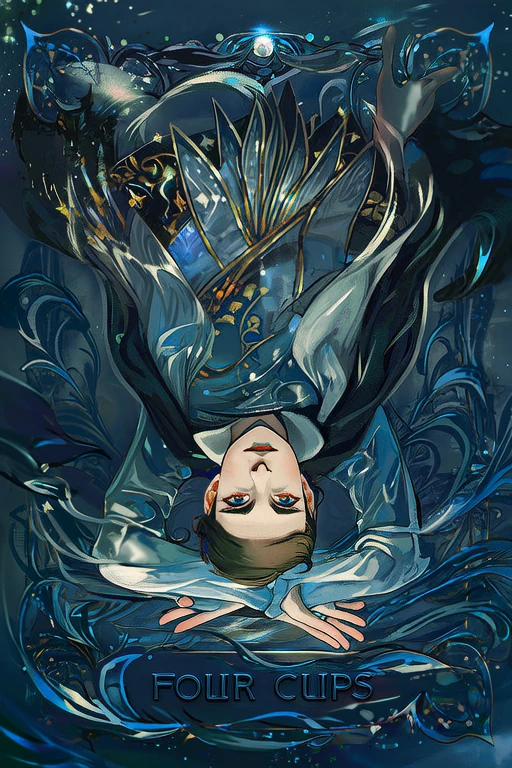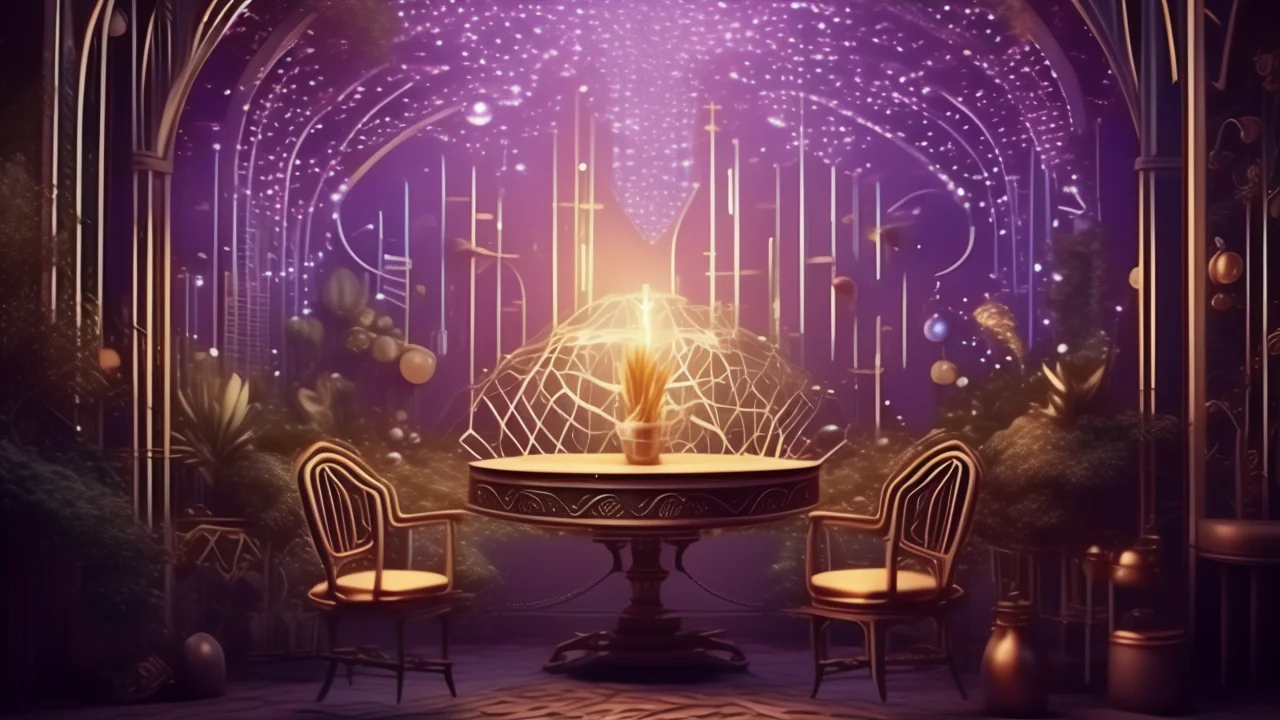
Eight of Cups
Discover the deep meaning of Eight of Cups with our free AI-powered tarot interpretation. Get instant, accurate readings based on advanced tarot knowledge.
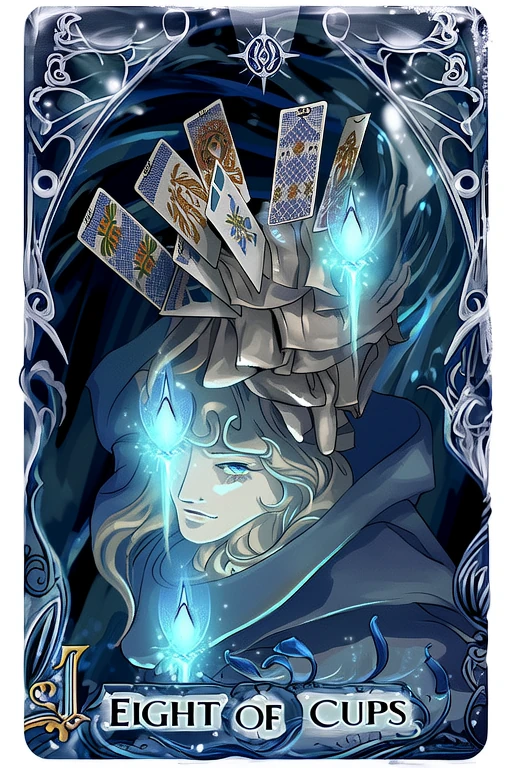
Keywords
Upright Meaning
Walking away, disillusionment, leaving behind
Reversed Meaning
Avoidance, fear of change, fear of loss
Full Interpretation
The Eight of Cups represents walking away from what no longer serves you.
In-Depth Analysis
📜 Historical Background
The Eight of Cups is a card from the Minor Arcana of the tarot deck, specifically belonging to the suit of Cups, which corresponds to the element of water and represents emotions, relationships, and the subconscious mind. Its origins trace back to early tarot decks used in 15th-century Europe, primarily in Italy and France. Originally, tarot was not used for divination but as a card game known as tarocchi or tarock. Over time, especially during the 18th and 19th centuries, the tarot evolved into a tool for esoteric and mystical practices, particularly influenced by the Hermetic and occult traditions.
One of the earliest known representations of the Eight of Cups appears in the Marseille Tarot, a standard design that heavily influenced later decks. In these early depictions, the card typically showed a solitary figure walking away from eight upright cups arranged neatly in rows. This imagery symbolized a departure from emotional attachments or unfulfilled promises. The figure’s posture often suggested introspection or a journey inward, a motif that persisted through various artistic interpretations.
As tarot evolved, especially with the rise of the Golden Dawn and the Rider-Waite-Smith deck in the early 20th century, the symbolism of the Eight of Cups became more nuanced. In the Rider-Waite-Smith version, drawn by artist Pamela Colman Smith under the direction of A.E. Waite, the image is more vivid: a lone man in a cloak walks away from eight sturdy cups on a rocky hillside, heading toward a body of water where distant mountains loom. This imagery introduced a stronger sense of emotional transition and spiritual seeking.
Cultural variations of the card exist across different tarot traditions. In the Thoth Tarot designed by Aleister Crowley and Lady Frieda Harris, the card is titled 'Indolence' and associated with the astrological sign of Scorpio. This version emphasizes the danger of emotional stagnation or refusal to move forward. Meanwhile, in some modern decks, the Eight of Cups may be reimagined with diverse cultural or artistic influences, such as Indigenous, Eastern, or feminist reinterpretations, each offering a unique lens on the universal theme of emotional detachment and growth.
Throughout its history, the Eight of Cups has maintained a core theme of leaving behind emotional burdens or situations that no longer serve the individual. Whether viewed through the lens of mythology, psychology, or personal development, the card continues to resonate as a symbol of inner journey and the courage to walk away from what no longer nourishes the soul.
Symbolism & Imagery
The Eight of Cups is rich in symbolic meaning, with each visual element contributing to its emotional and spiritual depth. At the heart of the card is the solitary figure walking away from eight upright cups, often depicted as a man in a contemplative or determined posture. The cups themselves, arranged neatly on rocky terrain, represent emotional experiences, relationships, or opportunities that may have once held promise but are now left behind. Their upright position suggests that they remain intact and potentially viable, yet the figure chooses to abandon them, symbolizing a conscious decision to release emotional attachments.
The figure’s movement toward water and distant mountains carries profound symbolism. Water, associated with the suit of Cups, represents the emotional realm, intuition, and the subconscious. The distant mountains imply a spiritual journey or the pursuit of higher understanding. This movement away from the familiar (the cups) toward the unknown (the water and mountains) suggests a need for emotional healing, self-discovery, or the pursuit of a deeper truth.
Color plays a significant role in the card’s interpretation. The muted or earthy tones of the landscape reflect a somber, introspective mood, while the figure’s cloak often appears in a lighter shade, symbolizing hope, spiritual awakening, or the light of inner guidance. The rocky terrain beneath the cups indicates the emotional challenges or difficulties that have led to this moment of departure.
Numerologically, the number eight is associated with balance, karma, and cycles. In the context of the Eight of Cups, this suggests that the emotional journey depicted in the card is part of a larger karmic or spiritual process. The number eight also implies strength and resilience, indicating that walking away is not an act of weakness but one of courage and self-awareness.
In some interpretations, the Eight of Cups is associated with the astrological sign Scorpio, governed by Pluto and Mars. This connection adds layers of transformation, emotional depth, and the need to confront hidden truths. The reversed meaning of the card often suggests emotional stagnation, fear of change, or reluctance to let go, highlighting the importance of movement and growth.
Cross-culturally, the card resonates with themes of pilgrimage, inner calling, and the hero’s journey. In Jungian psychology, it may represent the archetype of the Seeker or the Wounded Healer—figures who must leave the comfort of the known to discover their true purpose. Whether upright or reversed, the Eight of Cups invites reflection on what we are willing to leave behind in order to evolve emotionally and spiritually.
Psychological Insights
From a psychological perspective, the Eight of Cups resonates deeply with the process of individuation, a concept central to Carl Jung’s analytical psychology. Individuation refers to the integration of the conscious and unconscious parts of the psyche to achieve a more complete self-understanding. The card symbolizes the internal journey one must undertake to shed emotional burdens, outdated beliefs, or unfulfilling relationships that no longer align with one’s authentic self. It reflects the archetype of the seeker—a figure who must walk away from comfort and familiarity to pursue deeper meaning and personal truth.
In modern life, the Eight of Cups often appears when an individual is facing a significant emotional crossroads. This may manifest as leaving a job that no longer provides fulfillment, ending a relationship that has become stagnant, or stepping away from social expectations to follow a more authentic path. Psychologically, this card encourages introspection and emotional honesty, urging individuals to recognize when they are clinging to situations out of habit or fear rather than genuine alignment with their values.
Therapeutically, the Eight of Cups can be a powerful tool for counseling and self-reflection. It supports clients who are struggling with emotional attachments, grief, or indecision by reinforcing the importance of moving forward for personal growth. In shadow work—a psychological practice that involves exploring the unconscious parts of the self—the card can symbolize the need to confront and release suppressed emotions or past wounds that hinder progress.
Spiritually, the Eight of Cups aligns with mindfulness, meditation, and energy healing practices. It encourages practitioners to listen to their inner guidance and trust the process of emotional release. Many modern spiritual seekers interpret the card as a call to deepen their spiritual practice, whether through retreats, journaling, or guided inner journeys. It also connects with the idea of surrender—releasing control and allowing life to unfold with trust in one’s higher purpose.
Ultimately, the Eight of Cups serves as a reminder that growth often requires detachment. Whether in therapy, personal development, or spiritual exploration, this card supports the courageous act of walking away from what no longer nourishes the soul in order to embrace a more authentic and fulfilling life path.
Correspondences
The Eight of Cups is deeply connected to astrological and elemental energies that enhance its symbolic meaning. In the Hermetic tradition, it is associated with the astrological sign Scorpio, ruled by Pluto and Mars. This connection emphasizes themes of transformation, emotional depth, and the necessity of confronting hidden truths. Scorpio’s influence adds intensity to the card, suggesting that the emotional journey depicted is not merely a passive departure but a necessary shedding of old emotional skins to make way for renewal.
Elementally, the Eight of Cups belongs to the suit of Cups, which is linked to the element of water. Water governs emotions, intuition, and the subconscious mind, reinforcing the card’s theme of emotional release and inner exploration. The card’s movement toward water in many depictions aligns with this elemental correspondence, symbolizing a return to the source of emotions for healing and clarity.
Gemstones and crystals associated with the Eight of Cups include amethyst, known for its calming and spiritual properties, and black tourmaline, which aids in grounding and releasing emotional blockages. Rose quartz, a stone of love and emotional healing, also resonates with this card, supporting the process of letting go with compassion. Essential oils such as lavender, frankincense, and ylang-ylang can be used to encourage emotional release and introspection.
Herbal correspondences include mugwort for dream work and emotional clarity, chamomile for soothing emotional distress, and sage for purification and release. These natural elements support the card’s energy in rituals or meditative practices aimed at emotional healing.
The Eight of Cups is also connected to the second decan of Scorpio (approximately October 23 to November 21), further reinforcing its themes of emotional transformation. Numerologically, the number eight signifies cycles, balance, and karma, suggesting that the emotional departure represented by this card is part of a larger spiritual lesson or energetic exchange. In terms of chakra alignment, the card resonates with the heart chakra (Anahata), encouraging emotional healing, and the third eye chakra (Ajna), supporting intuitive insight and inner guidance.
❓ Frequently Asked Questions
The Eight of Cups is a card that often raises questions, especially among those encountering it for the first time in a reading. One of the most common inquiries is: 'What does it mean when the Eight of Cups appears in a reading?' In essence, the card suggests a need to walk away from an emotional situation that is no longer serving you. Whether it's a relationship, job, or belief system, the message is one of release and inner journey.
A frequent misconception is that the Eight of Cups always indicates a negative or painful departure. However, in many cases, it signals a necessary and healthy transition. It is not about loss but about growth through detachment. Beginners may also confuse it with the Five of Cups, which deals more with grief and regret, whereas the Eight of Cups is about conscious choice and moving forward.
For professional readers, the Eight of Cups works well in spreads that explore emotional blocks, life transitions, or spiritual growth. In a three-card spread, it might indicate a past emotional attachment (Past), the need to let go (Present), and the journey ahead (Future). In a Celtic Cross spread, it often appears in the 'Hopes and Fears' or 'Challenges' positions, indicating a struggle with emotional release or a need for transformation.
When the Eight of Cups appears alongside other cards, its meaning can shift depending on the context. For example, paired with the Two of Cups, it may suggest the end of a relationship that was emotionally unfulfilling. With the Hermit, it reinforces the need for solitude and inner reflection. When reversed, it can indicate emotional stagnation or a reluctance to move forward, often appearing alongside cards like the Five of Pentacles or the Ten of Swords to highlight emotional exhaustion or fear of change.
Interpreting the Eight of Cups in different contexts requires sensitivity to the querent’s situation. In career readings, it may suggest leaving a job that no longer aligns with personal values. In love readings, it can indicate the need to walk away from an unbalanced or stagnant relationship. Spiritually, it is a call to deepen one’s inner journey and trust the process of emotional evolution. Readers are encouraged to ask open-ended questions to help the querent explore what they may need to release in order to grow.
Practical Readings
Love Reading – Free • Online • AI • Instant • Accurate
In love, Eight of Cups upright: Walking away, disillusionment, leaving behind. Reversed: Avoidance, fear of change, fear of loss.
Career Reading – Free • Online • AI • Instant • Accurate
For career, Eight of Cups upright: Walking away, disillusionment, leaving behind. Reversed: Avoidance, fear of change, fear of loss.
Yes‑No Reading – Free • Online • AI • Instant • Accurate
As a quick yes‑no: upright tends toward “yes”, reversed leans “no”—interpret within your question’s context.
FAQ
What does Eight of Cups mean in tarot?
Eight of Cups represents walking away, disillusionment, leaving behind. This card encourages The Eight of Cups represents walking away from what no longer serves you.
What is Eight of Cups reversed meaning?
When Eight of Cups appears reversed, it signifies avoidance, fear of change, fear of loss. Consider areas that may require adjustment or release.
Is Eight of Cups a positive card?
Eight of Cups is generally considered a neutral to positive card, representing walking away, disillusionment, leaving behind.
What should I do if I draw Eight of Cups?
If you draw Eight of Cups, focus on walking away, disillusionment, leaving behind. Align actions with the card’s upright energy.
How do I interpret Eight of Cups in a love reading?
In love readings, Eight of Cups suggests walking away, disillusionment, leaving behind in relationships. Consider how walking away and disillusionment apply to your situation.
What does Eight of Cups mean in a love reading?
In love, Eight of Cups points to walking away, disillusionment, leaving behind when upright and avoidance, fear of change, fear of loss reversed. Reflect on relational balance & authenticity.
How is Eight of Cups interpreted in career?
For career, Eight of Cups upright highlights walking away, disillusionment, leaving behind while reversed warns of avoidance, fear of change, fear of loss—adjust planning & execution.
What is the financial meaning of Eight of Cups?
Financially, Eight of Cups suggests walking away, disillusionment, leaving behind potential; reversed indicates avoidance, fear of change, fear of loss—use prudent pacing.
Is Eight of Cups a yes or no card?
Eight of Cups is generally a context-dependent when upright; reversed leans toward hesitation or NO—apply to the nuance of your question.
References
References
- Encyclopaedia Britannica – Tarot
Historical overview and cultural context of tarot cards.
- Wikipedia – Tarot
General reference on tarot history, structure, and usage.
- Biddy Tarot – Tarot Card Meanings
Widely cited interpretations and learning resources.
- Labyrinthos – Tarot Card Meanings
Educational articles on major and minor arcana.
